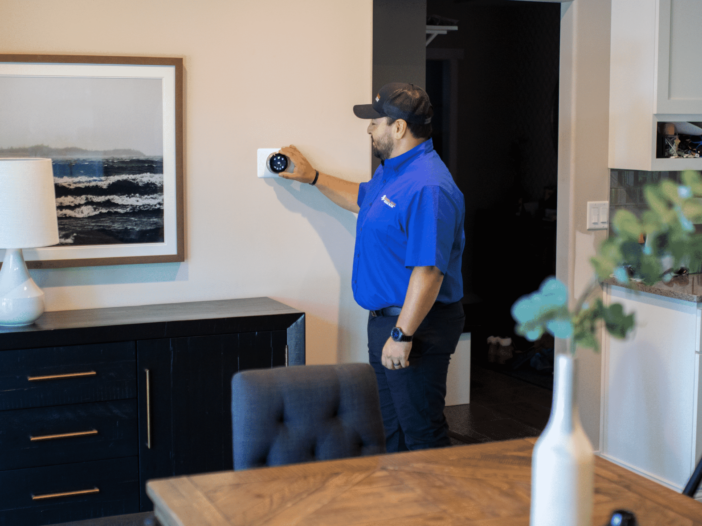
When indoor temperature control becomes an issue, closing HVAC registers seems like a no-brainer. After all, by keeping conditioned air out of certain rooms where you don’t need it, you can keep the rest of the house comfortable plus save money by not wasting unwanted heating or cooling.
Unfortunately, it’s not that simple. Your HVAC units and ductwork system are designed and engineered to work together to deliver a specific volume of air to each and every room based on the square footage of the room. That careful equilibrium can be affected by closing one or more registers. Here are some of the unintended consequences that can result:
No energy savings.
Your HVAC system doesn’t know whether all registers in the house are open or not. It just keeps producing the same volume of heated or cooled air—and consuming the same amount of energy—until the thermostat setting is achieved.
Inconsistent comfort.
Supply air volume into each room is controlled by adjusting internal dampers located inside the
branch ducts. This ensures appropriate airflow volume to maintain consistent temperatures whether a room is located close to the system blower or far away. Closing one or more supply registers disrupts airflow balance and temperatures throughout the entire system. Rooms closest to the blower may receive too much airflow while rooms far away may not get enough.
Pressure imbalances.
Supply registers may be closed to stop airflow but return registers remain open at all times. Therefore, the return system continues to draw air out of the room even when there is no supply air entering. This discrepancy depressurizes the room and/or part of the house. A depressurized room draws unfiltered cold or hot outdoor air into the room through small structural cracks and gaps. This infiltrating air destabilizes room temperature and can degrade indoor air quality.
More wear and tear.
Closing supply vents increases static pressure inside the supply ductwork which in turn stresses the system blower, potentially leading to shorter service life of that component.

